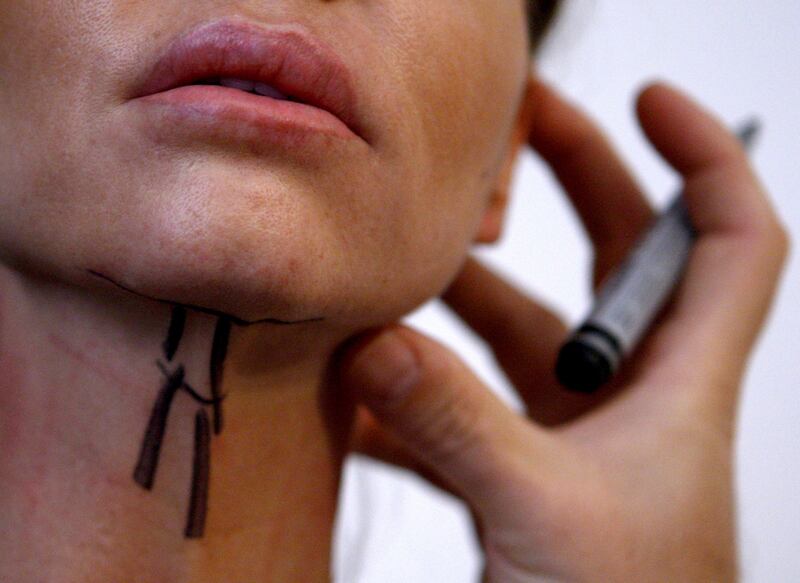Reem is in her early twenties; she has large eyes. Hers is what developmental biologists call a neotenous face. A narrow chin, small nose and wide-set eyes, all crowned by a broad forehead; juvenile features retained into adulthood - the classic babyface. Reem doesn't dislike her face, but she still wants to improve it. Reem is not alone in her desire for appearance enhancement. Increasingly, young women in the Arabian Gulf region are electing to undergo surgical cosmetic procedures.
A recent study undertaken in Saudi Arabia, published in the Journal of Taibah University Medical Sciences, reported that around 2.2 per cent of the participants, Saudi college women, had undergone cosmetic surgery. Furthermore, 11 per cent were considering such surgery, while 12 per cent reported having a family member who had already performed at least one cosmetic surgery. Among the 596 Saudi college women who participated in this study, the average age was just 20. And while this study only focused on women, there is anecdotal evidence that cosmetic procedures are gaining popularity among the Gulf's young men too.
The idea of cosmetic surgery often splits opinion, and the Saudi study was no exception. Two-thirds of participants, were unsupportive of people undergoing elective cosmetic surgery, while one-third endorsed the idea that people have the right to enhance their appearance surgically if they so choose. In the Gulf context, those who are pro cosmetic surgery, typically fly the flag of personal choice, while those against the idea might reference the Qur'anic verse concerning "…changing the creation of Allah" (Quran 4:19).
In 2008 the journal, Aesthetic Plastic Surgery, published a review of Islamic legal perspectives on surgical cosmetic interventions. The article's authors concluded that the prohibitive position is not absolute and that there is some ambiguity related to arguments about cosmetic surgery promoting quality of life. To support their position, some advocates of cosmetic surgery even go as far as citing the widely known prophetic tradition: "Allah is beauty and loves that which is beautiful".
Leaving aside the prickly debates about right and wrong, pro and con, another important question to ask is, why? What would motivate a perfectly healthy, relatively attractive, young woman or man to opt for cosmetic surgery? When I ask such a question in my psychology classes the top answer is always "the media". In recent years, however, the answer has increasingly become, "social media".
The Saudi study explored this question of motivation and influence, finding that 50 percent of those participants who had undergone surgery, attributed their decision to social media.
Once, only celebrities were airbrushed to perfection, now even the "nobody" from next-door can compete for the title of most liked face on the internet.
As sophisticated as humans are, we are also mimetic. Sometimes, if we see enough people doing something, we feel almost compelled to follow suit. Increasingly, social media is where we find out what other people are doing.
Social media also encourages social comparison, and comparison encourages competition. Cosmetic surgery is to physical appearance as performance enhancing drugs are to athletics, easy to ignore as long as all the other competitors leave it alone.
Beyond Social media, another reason given for undergoing cosmetic surgery is pressure from a spouse. In the Saudi study, 11 per cent of participants said they would consider surgery if their husband requested it. There is also the possibility that other family members might pressure young people into appearance enhancing interventions. It's not hard to imagine a mother, keen to see her daughter married, suggesting procedures she feels will improve her offspring's marital prospects.
The popularity of cosmetic surgery is an aspect of social change that seems likely to increase in coming decades. The relationship between cosmetic surgery and psychiatric conditions, such as body dysmorphic disorder, depression and anxiety, is well documented. Other psychological and social consequences associated with our changing attitudes towards cosmetic surgery are also likely to emerge. Our increasing pursuit of appearance enhancement via surgery is an aspect of social change that requires careful monitoring, regulation and further research.
Our pursuit of perfection through surgery requires careful monitoring

Comment Latest
COMMENT




